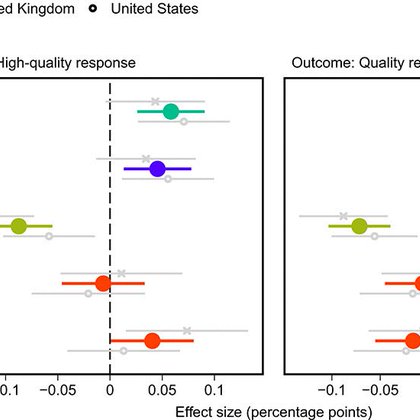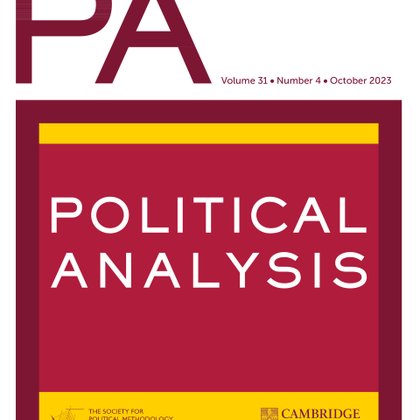
Gregory Eady
@GregoryEady
Followers
1K
Following
2K
Media
53
Statuses
2K
Associate Professor, Department of Political Science & Center for Social Data Science, University of Copenhagen. https://t.co/XeUPJw0gVO
Copenhagen, DK
Joined June 2010
RT @Dcruz_d: New publication alert! My first article is out in Political Behavior! In it, I ask: Are politicians more influenced by persona….
0
55
0
An early version of this paper led to a grant proposal about political discourse which, beginning this fall, will be graciously funded by @DFF_raad.
0
0
2
Bottom line:. Even if we can't always change minds with more constructive arguments, we can change the quality of political discussion that we, ourselves, have with others—if we want it. Further results in the full paper:. 🔗 13/n.
science.org
Adjusting tone, justification, and compromise improves online debate quality but does not change political attitudes.
1
0
1
🚨 New paper in @ScienceAdvances. Can changing how we argue about politics online improve the quality of replies we get?. @THeideJorgensen, @a_rasmussen, and I use an LLM to manipulate counter-arguments to see how people respond to different approaches to arguments. Thread 🧵1/n
1
17
55
RT @CurtisPuryear: New preprint! We developed new measurement tools to study moralization in ~2B X & Reddit posts and ~5M traditional media….
0
11
0
RT @KobiHackenburg: Today (w/ @UniofOxford @Stanford @MIT @LSEnews) we’re sharing the results of the largest AI persuasion experiments to d….
0
125
0
RT @rmichaelalvarez: Excited to report that this paper with @Jacob_Morrier is now published in @polanalysis! Interested in LLMs? Give it a….
cambridge.org
Measuring the Quality of Answers in Political Q&As with Large Language Models
0
5
0
RT @deedydas: Most important tech blog this year: OpenAI engineer and ex-founder of $3.5B Segment wrote a tell all post about how OpenAI wo….
0
365
0
RT @_FelixSimon_: How harmful is GenAI around elections? Will it trigger a misinformation apocalypse and upend elections?. I am happy to fi….
0
36
0







